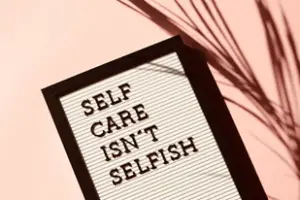You’re not alone in your worry about the ‘unseen’ negative effects of difficult situations. Let’s discuss practical solutions to minimize the risk and protect your wellbeing.
Difficult situations are physically and emotionally daunting. And, there is a good chance that they are affecting you far more than you’ll ever realize. But frankly, they are often unavoidable. However, we can drastically minimize the toll it has on our well-being once we learn how to cope.
Although this isn’t shocking, the worst part is that your children are also very vulnerable to the negative effects of difficult situations. This is especially true if the event is unprecedented. Fortunately, you can fight back. Yes, preventing all the consequences is virtually impossible, but you can at least try to significantly reduce the impact that difficult situations have on your family.
- You're not alone in your worry about the 'unseen' negative effects of difficult situations. Let's discuss practical solutions to minimize the risk and protect your wellbeing.
- Learning to cope with difficult situations:
- 1.Prioritize your mental health during difficult situations
- 2.Actively discuss the effects of difficult situations
- 3.Avoid mental health disorders during difficult situations
- 4.Behavioral changes during difficult situations
- 5.Stick to a routine during difficult situations
- 6.Find something to look forward to
- 7.Find ways to be creative despite challenging times
- 8.Be cautious of unhealthy habits
- 9.Improve family connections and social support
- 10.Keep up with your physical activity
- 11.Identify personal strengths and weakness
- 12.Work on your parenting
- 13.Keep learning even during challenging times
- 14.Spend some time outdoors
- 15.Develop a new mindset during difficult situations
- 16.Seek professional help during difficult situations
- The Challenges Of The Pandemic
- Domestic Violence Is Never Okay

“Resilience is our ability to bounce back from life’s challenges, and unforeseen difficulties providing mental protection from emotional and mental disorders.” – Micheal Rutter, 1985
Learning to cope with difficult situations:
1.Prioritize your mental health during difficult situations
Although some persons do take steps to keep their physical health intact, it’s quite easy for their mental health to be ignored. As such, be aware of the psychological impact that difficult situations may have on you and your household.
Know that everyone’s response will be different and realize that some individuals are more vulnerable than others. Further, no one is immune to mental health challenges so don’t forget yourself in the process.
2.Actively discuss the effects of difficult situations
Remain as calm as possible as you encourage everyone to share their feelings and concerns. These conversations are important to help decrease any potential stigma relating to the difficult situation. Try to fully understand how they are feeling and address negative emotions and fears.
Patience and sensitivity are crucial! Respond honestly, without judgment and offer reasonable reassurance. Let them know that they don’t have to be silent, especially if they are struggling.
3.Avoid mental health disorders during difficult situations
Positive coping strategies are important resources that will minimize the effects of any difficult situation and are protective factors for mental health issues.
These may include self-soothing, problem solving, identifying emotions, self-validation, affirmations and asking for assistance. These will vary depending on age and development. Help your family to:
- Understand the value of positive coping
- Decide which coping strategies they prefer
- Develop the ability to implement them on their own.

“Problems are not the problem; coping is the problem”- Virginia Satir
4.Behavioral changes during difficult situations
Be vigilant because behavioral changes during difficult situations may be subtle but can be important indicators of mental health disorder. This is especially important for persons who are less vocal than others and may not communicate their feelings.
These include, but are not limited to, changes in eating habits, sleeping patterns, concentration, mood, and personality.
5.Stick to a routine during difficult situations
Routines are very beneficial, even for adults and will give a sense of normalcy even during difficult situations. Each time you must make a decision-even a small one- it adds some amount of stress to your life. So, it may be more valuable to save that extra brain power for other tasks.
Additionally, actively incorporating activities that you love into your routine is the best way to create healthy lifestyle habits.
Research proves that by setting routines you increase your control over the situation and decrease the amount of decisions you must make throughout the day, thereby decreasing your overall stress level and increasing your control (Piedmont Healthcare, 2020).
6.Find something to look forward to
We all love to look forward to that light at the end of the tunnel. So even though many of your exciting plans may have changed, always find something to look forward to.
Think about your interests and desires and find little way to reward and motivate yourself and others. Do something special every weekend, celebrate special dates and events.
Set aside a date to spoil yourself with a special gift or treat. Although small, these will serve as helpful distractors. Be flexible, just in case you need to readjust your plans.
7.Find ways to be creative despite challenging times
Difficult situations, due to finances, time or even personal desire, may leave you stuck in a situation that is less than ideal. However, be creative and try to find ways to keep yourself entertained even if you don’t feel like going out. Remember, the more you try to be creative, the more creative you become.

Although living in the present has been proven to increase happiness. During stressful times, it’s more helpful to have something to look forward to. - LeNaya Smith Crawford, 2020
8.Be cautious of unhealthy habits
As much as possible, keep poor diet, smoking, binging, alcohol and a sedentary habits at bay. Bad habits are easily created but hard to live with and even harder to get rid of. Teach your children the importance of creating healthy habits.
9.Improve family connections and social support
Out of sight doesn’t have to mean out of mind. Thanks to the internet it’s easier than ever to stay in touch. Effective communication with friends and relatives may be extremely helpful when dealing with difficult situations.
Also, use this opportunity to improve you our connections with your children. Doing little things together, will help you develop a deeper bond while taking care of yourselves.
10.Keep up with your physical activity
Don’t let difficult situations be a permanent excuse to avoid physical activity entirely. After all, you may probably need the benefits of exercise now more than ever.
Even if you don’t own any sophisticated equipment, simple exercise routines will go a long way for both your mental and physical health.
Remember, heart disease and high cholesterol don’t respect any excuse so find a way to stay on top of your game.
11.Identify personal strengths and weakness
Take a break but don’t give up on your personal development. What are the good at? What areas of your lives can use improvement? Work on improving both your weakness and building on your strengths.
Know what are the things or persons that you need to avoid or include to improve your emotional health. Please note that you don’t have to figure out everything at once, but you’ll appreciate any little investment you make in yourself.
Check out my best short-term and long-term goals for personal development.
It’s okay to take breaks but don’t lose your motivation for progress.

"Hope is important because it can make the present moment less difficult to bear. If we believe that tomorrow will be better, we can bear a hardship today." -Thich Nhat Hanh
12.Work on your parenting
Children learn a lot from their parents and often model their coping patterns from their parents. Although you may definitely have extra on your plate, remember that you’re their biggest role model and are likely leaving permanent footprints in their lives.
If you’re stressed and anxious, it may affect your children as well. An essential part of being a good parent is taking care of yourself.
13.Keep learning even during challenging times
Difficult situations often provide a great learning opportunity. Additionally, keeping yourself distracted may be very helpful.
As such, try new things, read more, improve your cooking, get a new hobby, start a side income. Whatever you decide, learning will boost your confidence, self-esteem and give you a greater sense of purpose.
14.Spend some time outdoors
Nothing beats some good old fresh air. Escape the duties of indoor and take some time to relax outdoors. Nature is known for improving wellbeing and decreasing anxiety and depression.
15.Develop a new mindset during difficult situations
Yes, things may seem pretty grim, but always find something to celebrate. By just changing your mindset and trying to focus on the positive, instead of the negative your stress levels will greatly decrease.
You may not be able to control your situation but you do have the power to control your reaction. Find joy in what you can do now. Celebrate little victories.
16.Seek professional help during difficult situations
If you are finding it particularly challenging to cope during difficult situations, it is essential to communicate your feelings to your health care provider.
This will help you get the support you need. Remember that you do not need to be alone in your struggle and that your feelings are validated.

"A problem is a chance for you to do your best." -Duke Ellington
Be Positive…
I know that making positive changes are easier said than done. As such, this post is not meant to overwhelm but simply inspire you thrive even during difficult situations. Even if you take baby steps, it will definitely be worth it.
Anticipation of an unfavorable event may be even more stressful than the event itself so it’s important to live in the present and use these strategies to protect your future.
Can you think of other ways to manage difficult situations? Let me know in the comments below and remember to share this so that others can benefit as well.
Related Topics:
The Challenges Of The Pandemic
For most, if not all of us, life has drastically changed. Although warranted, it’s debatable whether the impact of the social restrictions, job loss, school closures, changes in routine and mental health disorders may have an even greater toll that the physical effects of the virus.
For instance, children reported feelings of fear, isolation, anxiety, social stigma, frustration, sadness, grief, confusion, and irritability relating to the pandemic.
They also reported high rates of mental health disorders such as PTSD (post-traumatic stress disorder) and adjustment disorder (Imran et al., 2020).
Domestic Violence Is Never Okay
Regardless of how often it occurs, the type of injuries you endure, or whether or not weapons are used, domestic violence is never right. For most persons, deciding to stay depends on a multitude of factors.
These include – but are not limited to – financial standing, job or career opportunities, children, drug use or abuse, false memories and/or fear.
But, you must know that domestic violence is never okay and it usually increases with time, unless the victim leaves or the couples seek therapy. Unfortunately, the partner usually ends up hurt or killed before either of this happens.
Additionally, these behaviors are often reflected in the future behavior of their children who are exposed and are at risk of violence themselves.
References:
Borresen, K. (2020) The psychological benefits of having things to look forward to. Available here (Accessed: 29-Jan-2021).
Imran, N., Aamer, I., Sharif, M. I., Bodla, Z. H., & Naveed, S. (2020) Psychological burden of quarantine in children and adolescents: A rapid systematic review and proposed solutions. Pakistan journal of medical sciences, 36(5), 1106–1116.
Lo Moro G, Soneson E, Jones PB, Galante J. (2020) Establishing a Theory-Based Multi-Level Approach for Primary Prevention of Mental Disorders in Young People. Int J Environ Res Public Health. 2020, 17(24):9445, doi: 10.3390/ijerph17249445.
Piedmont Healthcare (no date) Why routines are good for your health. Available here (Accessed: 29-Jan-2021)









